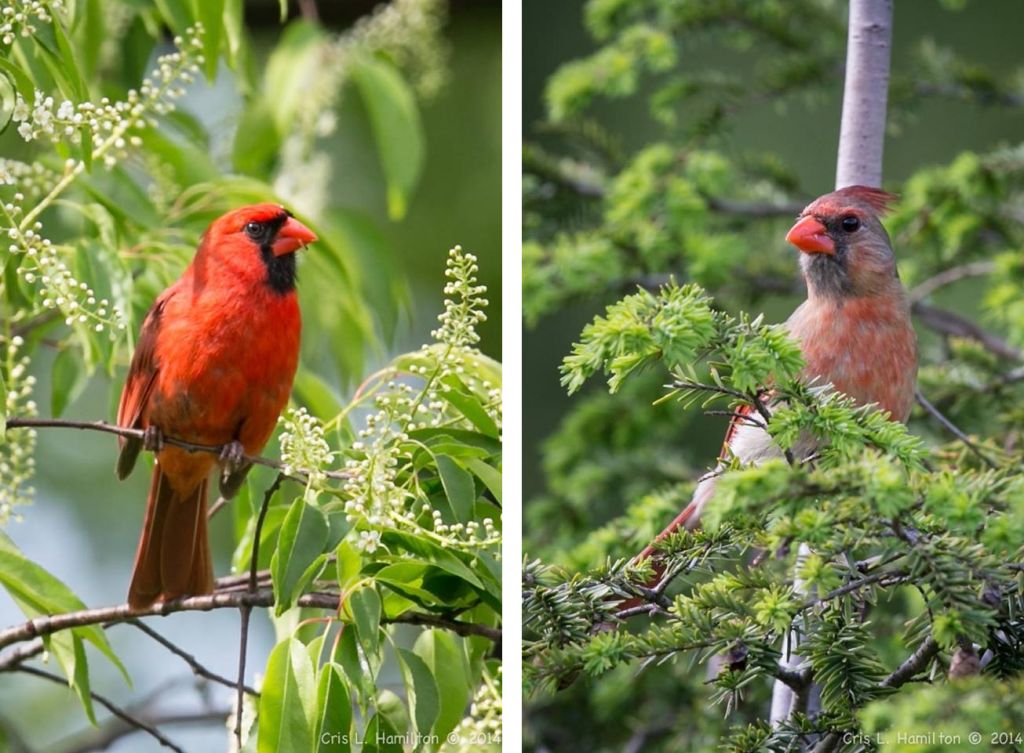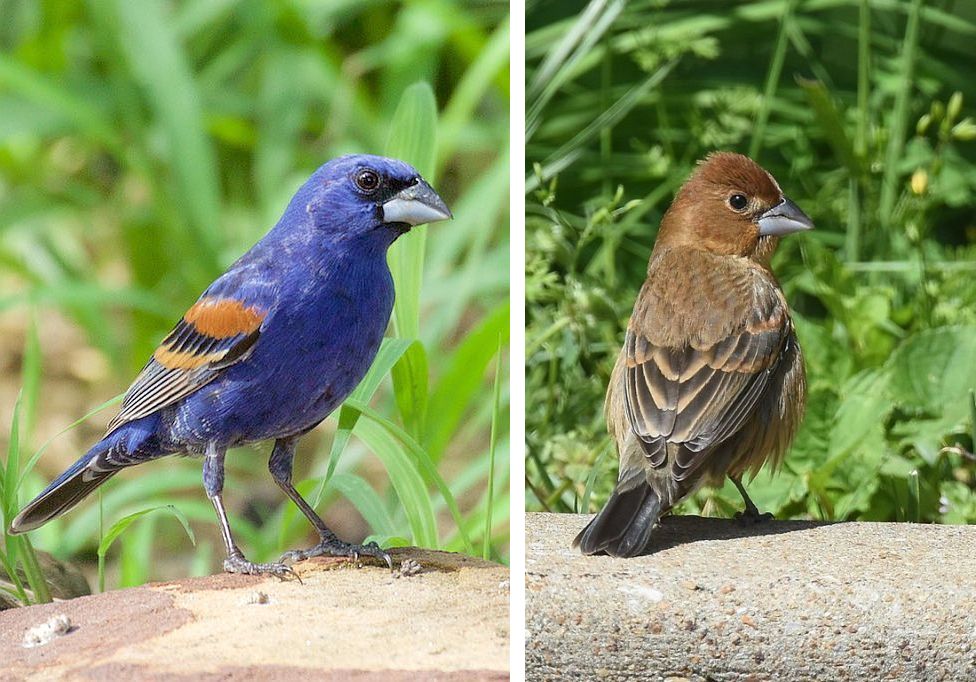
When I took a class on birdsong in the 1990’s I learned that only male birds sing, the females do not. Then in 2014 that “fact” was turned upside down. 71% of female songbirds do sing. It’s just that most of them are tropical species.
The original conclusion was drawn from centuries of observations in Europe and North America. No one had studied birdsong worldwide until a team lead by Karan Odom of University of Maryland published their findings in Nature Communications in March 2014.
Perhaps the old-time observers were blinded by their assumption. There are species in North America whose females sing especially in the Cardinalidae family. For instance, northern cardinals (Cardinalis cardinalis) counter-sing and perform duets. Listen for the lady in the background of the recording below (and in this one).
Female blue grosbeaks (Passerina caerulea) sing, too, as recorded by Ted Floyd in Colorado last week.

This is a Blue Grosbeak. Belting out a tune. But it’s not a male.
— Ted Floyd (@BirdingMagazine) June 11, 2020
Friendly reminder: Females of many species, notably “cardinalids” like this grosbeak, are accomplished songsters.@femalebirdsong @BirdSongLab1 @ABA @xenocanto @canicas @NappyHairRevel @LaurynBenedict @DMennill pic.twitter.com/bidp75raoH
Learn more about females who sing at the Female Birdsong Project http://femalebirdsong.org. See a partial list of species and listen to the songs at their Why Study Female Song page. Contribute to the project here.
In the meantime, be alert for female songsters this month. In July most birds will stop singing.
p.s. I watched a female purple finch (Carpodacus purpureus) sing in Frick Park on 30 April and 3 May. Unfortunately, I didn’t think to record her.
(northern cardinal photos by Cris Hamilton, audio from xeno canto; blue grosbeak photos from Wikimedia Commons; tweet from Ted Floyd)
In your article you say, ” In July most birds will stop singing.” Is that because singing is associated with spring “courtship” behavior?
Yes, singing is associated with courtship and claiming territory. Birds that raise one brood have no need to sing after that brood leaves the nest, so they stop. You’ll notice that robins and cardinals continue to sing because they are raising additional broods.